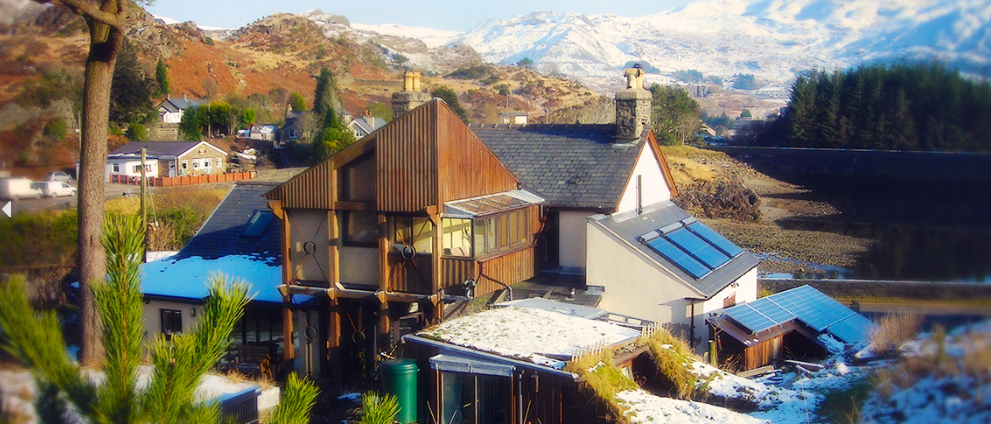Located in Snowdonia North Wales’ stunning landscape, this carbon neutral guest house is managed by one of the first people in the UK to put solar panels on the family home.
Since the beginning of this new business in 2006, the owners John and Celia placed sustainability at the heart of the project. Built in 1883, Bryn Elltyd now is equipped with some of the latest green technology thanks to the owner’s skills and experience as former aircraft engineer and technology teacher.
Bryn Elltyd Eco Guest House does not skimp on responsible practices to protect the natural environment. It is powered completely by renewable energy thanks to a computer run biomass boiler and two solar water heating arrays supplying the heating and electricity to the guest house. Moreover, this energy also powers three electric car charging points and a sauna. All this valuable heat is kept within the guesthouse thanks to external and internal insulation including sheep’s wool and two conservatories.
Seasonal fruit and vegetables are produced in an allotment where water comes from rainwater. Afterwards, 80% of the food and drinks are sourced from within 13 miles of the property. Guests cannot find more local free range eggs, sausages and bacon!
Bryn Elltyd is a central and ideal place for exploring Snowdonia and the rest of the North Wales. Consequently, its owners encourage visitors to use one of the many bike trails in the area to enjoy the Moelwyn mountains or the close hydro lake. This Green Key awarded establishment leaves nothing to chance!






